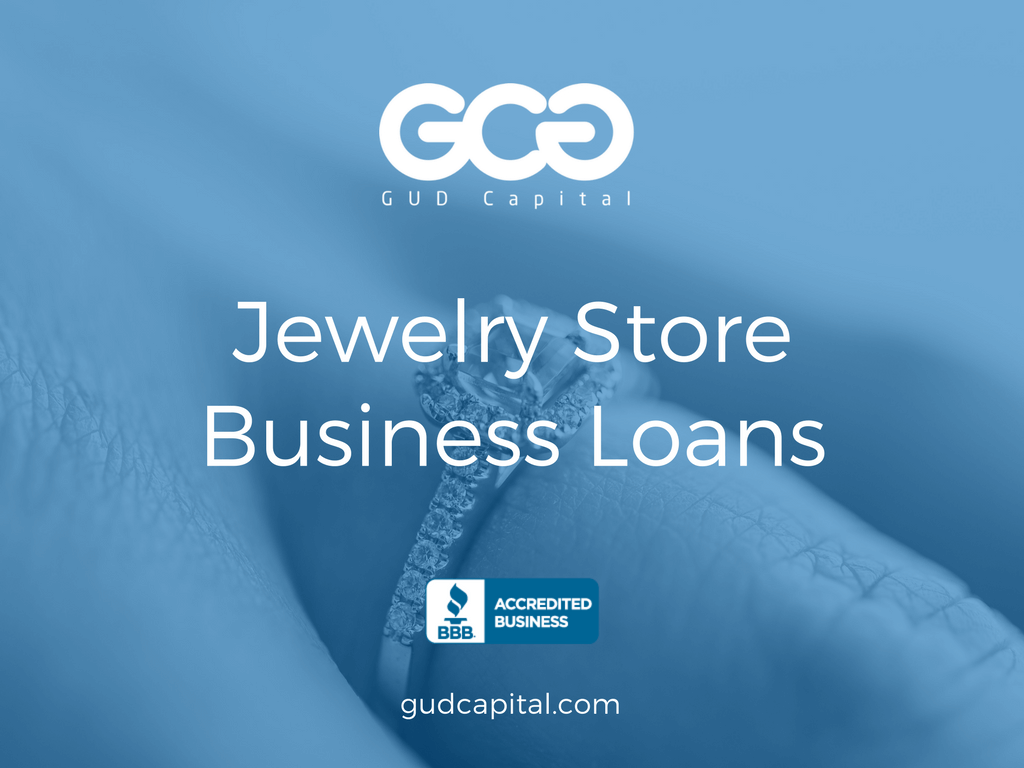Funding Options for Jewelry Stores
The jewelry industry is faced with keeping the attention of a young market with their shifting shopping habits and new competitors; thus old-school luxury jewelry companies are taking new approaches to stay relevant. These same heritage brands and fashion companies have been pretty slow to get on board with digital, but within the last few years; they have been working hard to change that. Houses like Burberry and Gucci, in particular, have had success with engaging people on social media and delivering seamless e-commerce experiences. Notably, Dolce & Gabbana and Fendi have made plenty of targeted efforts as well. Now, the group whose concept is tied up in exclusivity and legacy even more than any other fashion brands, fine jewelry, is trying to figure this transition out too. Although, as a whole, the jewelry market has been thriving as it is expected to grow at a rate of almost 6 percent per year over the next three years, and fine jewelry that makes up’s 5 percent of the overall market is predicted to make up to 10 percent by 2020. However, the industries most famous brands have been struggling—and will continue to if they do not capture the attention of the 18-to-34-year olds who are set to become “the most important cohort for diamond jewelry purchases” declared by an in-depth 2016 study conducted on the diamond industry by DeBeers. So with the increased competition, and a significant push from millennial shoppers, staying relevant will not be easy.
Quick-jump to the following sections:
Let’s take Tiffany and Co., for example, to better understand the emerging climate of jewelry stores; despite being considered one of the most iconic brands, period, net sales have declined a bit and have struggled to attract the attention of young shoppers. They are not alone, though, because when you look at how millennials tend to shop and what they care about, jewelry companies have traditionally embodied the opposite; instead, they cater to those who buy in-store, for gifts, or for status. Millennials do not shop that way and are more inclined to do self-gifting. They also have more of a disposable income then earlier generations, and they do not necessarily want to buy jewelry for status, but more for expressing individuality. As follows, the self-purchase trend brings opportunities for jewelers to focus on helping their young customers celebrate their identity or personal milestone-related pieces. They want to invest in a brand or style that represents them, rather than the latest Tiffany and Co., line. Hence, design appeal is expected to become more a priority in attracting new and repeat consumers.
Furthermore, the way in which younger shoppers shop has also caused for jewelry companies to take note and change their methods of selling as well as addressing their brand’s social responsibility. The most apparent being that jewelry is increasingly being shopped for online even if the final purchase takes place in a store. Often, consumers now, will search for the product information online and look for discount coupons or promotions via the web. Therefore, companies are aggressively shifting their retail and marketing efforts to attract modern jewelry shoppers that have been paying off. Jewelry brands have also used celebrity faces (particularly younger and popular with millennials) to market their more affordable collections. As for ethics, studies have shown that the sourcing of diamonds in 2015 presented to retailers that modern-day shoppers care about the responsible sourcing of products. As they become more knowledgeable about where their products are coming from, they push more for known ethical provenance.
Another area that is changing the industry and what may cause issues are the lab-grown diamonds. More and more companies are beginning to create them resulting in concern about the overall effect these constructed stones could have on the industry especially since consumers know as well and are asking for them. Consumers are drawn to them because they are priced 20 to 30 percent cheaper at retail than mined diamonds. They also like that they do not contribute to the destruction of the environment along with no one being harmed in their creation. However, this is not an indicator that traditional diamonds are going to stop being sold since inherently synthetics have no natural scarcity. One conflict though could be with unethical jewelers that may not let customers know a stone was human-made or not. Therefore, industry labs such as GIA and AGS have invested in equipment that tests the diamonds and allow for jewelers to send stones in for testing. As discussed, jewelry stores are becoming what most are evolving into, and that is a sophisticated and capital investment in technology, and with the changing consumer, jewelry industries are sure to bring more exciting innovations in the years to come.

Types of Jewelry Store Business Loans
There are thousands of financing options for small businesses including jewelry stores. But not every financing product is a good fit for what a jeweler is looking to accomplish. Below we will take a look at the various commercial financing options available to jewelers and jewelry store owners to help them make an informed decision.
Bank Loans For Jewelers
Bank loans and lines of credit are the most affordable form of financing a jeweler can obtain to help fund their business. Bank loans can be used for nearly any business purpose including purchasing a jewelry store, refinancing debt on a jewelry store, obtaining working capital and other operational uses.
| Rates | 5-15% |
|---|---|
| Terms | 1-30 years |
| Funding Amounts | $50,000-$5,000,000 |
| Collateral | Required |
| Fees | Medium costs |
Jeweler Line of Credit
Another affordable form of financing that is based mostly on the jeweler’s personal credit. Unsecured lines of credit require credit scores of at least 680, and no personal open lines that are maxed out. Unsecured lines of credit are generally used solely for working capital purposes but can be used for startup financing.
| Rates | 0% for 12 months |
|---|---|
| Terms | 1-2 years |
| Funding Amounts | $10,000-$500,000 |
| Collateral | Not be Required |
| Fees | Medium costs |
Alternative Jeweler Loans
A good form of financing for jewelry store businesses that need general working capital or financing with operating expenses but have been unable to get funded through a bank or conventional lender. Non-bank business lenders generally have lower credit requirements, as well as reduced paperwork and documentation requirements than a conventional lender. But ease of funding has its costs, as alternative loans for jewelry stores have higher rates than traditional funding options.
| Rates | 7-25% |
|---|---|
| Terms | 1-5 years |
| Funding Amounts | $50,000-$500,000 |
| Collateral | May not be required |
| Fees | Medium costs |
Merchant Cash Advance for Jewelers
This type of short-term financing is solely used for working capital purposes for jewelry in need of cash in a hurry. A merchant cash advance is a lump sum financing that involves the jewelry store selling a portion of their future revenue to a funding company to get access to immediate cash. After the funding company provides financing, the jeweler will then split a portion of each day’s credit card sales with the funder until the advance is repaid.
| Rates | 1.10 – 1.50 |
|---|---|
| Terms | 3-18 months |
| Funding Amounts | $10,000-$500,000 |
| Collateral | Not required |
| Fees | Medium costs |
Jewelry ACH Advance
This is very similar to a merchant cash advance in that it is also the sale of the jewelry store’s future receivables to a cash advance funding company. The main difference between a jewelry store merchant cash advance and a jewelry store ACH advance is the method of repayment. As mentioned previously, a MCA advance is repaid by splitting jewelry store credit card sales. With an ACH jewelry store advance the funder is repaid by taking a set amount from the jewelry store’s main operating account each business day until the advance is repaid.
| Factor rates | 1.10 – 1.50 |
|---|---|
| Terms | 3-24 months |
| Funding Amounts | $5,000-$2,000,000 |
| Collateral | Not required |
| Fees | Low to High costs |
Summary
These are but a handful of financing options available to new and existing jewelry store businesses. The key to obtaining the right financing product for your jewelry store is to have a full-understanding of all the options, and then working with the right lender to tailor their product to your needs. If you’re a jewelry store owner looking for financing, and you need help obtaining the best possible loan, please reach-out to one of our financing specialists, and they’ll help you secure the right financing.





















